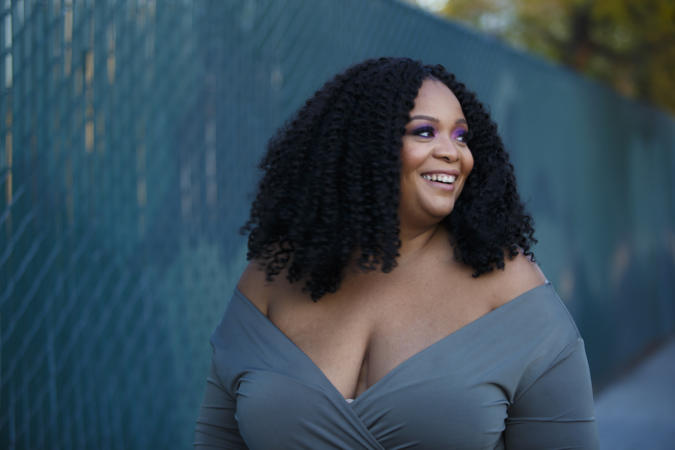This piece originally published on April 5, 2019.
From doctors who don’t believe Black women’s pain to higher rates of maternal mortality to the infamous Tuskegee experiment, anti-Blackness within the medical industry is well-documented. This history can make it difficult for Black people to receive — or even want to seek — healthcare.
Seeing Black doctors is one way many patients feel both comfortable and heard, but finding them can be incredibly difficult. Kimberly Wilson founded HUED to make that process easier.
HUED is a healthcare technology startup that Wilson describes as the “for us, by us” version of ZocDoc. Through Hued’s website or mobile app, patients can find and book appointments with Black and Latinx healthcare providers. Whether you’re looking for a doula, therapist, or doctor, Hued plans to be people’s one-stop shop.
HUED matches patient’s needs based on insurance provider, region, and specialty. In addition, patients can also access reviews about specific providers before booking an appointment.
Wilson’s inspiration to launch HUED came with frustrations around the lack of access and opportunities for Black and brown people.
“Nobody is going to take care of us, but us,” Wilson said. “Research shows that people of color are not getting the health and medical care they need because of fear, access to quality healthcare and distrust of doctors. But more importantly, our pain and traumas are being dismissed.”
For Black women, it’s not uncommon to have a story about inadequate healthcare. Wilson’s own experience navigating healthcare was also part of what led her to launch HUED.
As a Black woman in New York City, Wilson searched endlessly for a doctor who understood her physical, cultural, and mental health needs. She used platforms to book doctors but felt none of them seemed to take her seriously.
In 2017, Wilson ended up in the emergency room with fibroids, a condition that is prevalent among Black women. Studies show that more than 80 percent of Black women will develop fibroids by 50. Lauren Wise, professor of epidemiology at Boston University, told Healthline that Black women are also “more likely to report severe or very severe symptoms.”
The size of Wilson’s fibroids kept her in and out of the hospital throughout 2018. She said, “During that time I saw a lot of doctors — mostly white men — who either dismissed my pain or tried to push me down the route of a hysterectomy.”
Eventually, Wilson received a doctor recommendation from a friend. She ended up traveling all the way from NYC down to John Hopkins in Baltimore, just to see a Black woman practicing OB-GYN.
“Frustrated by my experience, and having to travel so far just to find a culturally competent physician — and the stories I had heard from friends and friends in my head, Serena Williams — I decided to do something about it,” Wilson said.
In a January 2018 Vogue profile, Serena Williams recalled her experience with serious complications after birth. Williams knew her own history with pulmonary embolisms so she alerted a nurse, but wasn’t taken seriously. For many Black women, like Wilson, Williams’ experience echoes their own.
Along with connecting communities of color to healthcare providers, Wilson is seeking to help educate people, too. That’s why HUED also launched a blog, where people can read about things like the rise of Black doulas.
“We have the highest rates of maternal mortality, diabetes, heart disease, etc.,” Wilson said. “We wanted to do something about that, and the first part is education — online and in person.”
HUED is tackling the in-person aspect of education this month. In partnership with Trellis Health, they’re hosting an event that will offer Black women in New York City free fertility testing and education about egg freezing.
HUED’s matching platform will launch next month in New York and Washington, D.C., but Wilson already has plans to expand nationally. Right now, HUED plans to focus on health education and creating more programs for communities.
In the future, she shared that HUED wants to offer telehealth services for those who may not have access to a plethora of diverse healthcare professionals.

